Sign Up For Our Newsletter
Impact on the progress of your workers’ compensation claim and any legal proceedings
If you test positive for drugs after a work injury in the state of Georgia, it can have significant implications for your workers’ compensation claim and your employment. Georgia law allows employers and workers’ compensation insurers to deny benefits if they can establish that the presence of drugs or alcohol was a substantial factor in causing the work-related injury. So what if it was not a substantial factor? Watch this video to learn more:
Here are some options and steps you can consider:
- Consult with an Attorney: The first and most crucial step is to consult with an experienced attorney who specializes in workers’ compensation and employment law in Georgia. An attorney from a specialized law firm such as Georgia Injury Advocates can provide guidance specific to Georgia’s laws and help you navigate your situation.
- Workers’ Compensation Claim: Pursue your workers’ compensation claim if you have not already done so. In Georgia, if you test positive for drugs following a work injury, it may affect your eligibility for benefits. However, it’s essential to consult with your attorney, as there may be circumstances where you can still receive benefits.
- Causation Evaluation: Work with your attorney to assess the causation of your injury. In Georgia, if the presence of drugs in your system is deemed to have been a substantial factor in causing your work-related injury, it could impact your claim. Your attorney can help you gather evidence and medical opinions to establish the cause of your injury.
- Challenge the Drug Test Results: If you believe there are inaccuracies or issues with the drug test results, your attorney can assist you in challenging the results. This may involve seeking a retest or questioning the validity of the initial test.
- Appeal a Benefit Denial: If your workers’ compensation claim is denied based on the positive drug test, you have the option to appeal the denial. Georgia has a specific process for appealing workers’ compensation decisions, and your attorney can guide you through it.
- Retaliation Claim: If you believe you were terminated or faced adverse employment actions in retaliation for filing a workers’ compensation claim or testing positive for drugs, you can file a retaliation claim. Georgia law prohibits retaliation against employees for exercising their rights under workers’ compensation laws.
- Rehabilitation and Treatment: Seeking rehabilitation and treatment for substance abuse voluntarily can be viewed favorably by the workers’ compensation system in Georgia. It may demonstrate your commitment to addressing the issue and could potentially influence the outcome of your case.
- Document Everything: Keep detailed records of all communications, medical appointments, drug test results, and relevant documents related to your work injury and workers’ compensation claim. These records can be valuable evidence in your case.
- Stay Informed: Stay informed and communicate regularly with your attorney to ensure you are taking the necessary steps to protect your rights.
- Employment Rights: Understand your employment rights in Georgia, especially if you were terminated from your job. Georgia follows at-will employment, but there are still legal protections against wrongful termination or retaliation.
Remember that the specific options available to you will depend on the laws of Georgia, the nature of your injury, and the evidence in your case. Consulting with a qualified attorney experienced in Georgia workers’ compensation and employment law is crucial to understanding your rights and pursuing the appropriate legal actions in your specific situation.
Injured at Work?
Satisfied clients: 4.8 star +Google Reviews
Contact us for help in filing a Georgia workers’ compensation claim.
GA Injury Advocates
Latest posts by GA Injury Advocates (see all)
- Focus on the Road: Don’t Text and Drive. Stay Safe and Drive Smart - December 29, 2023

